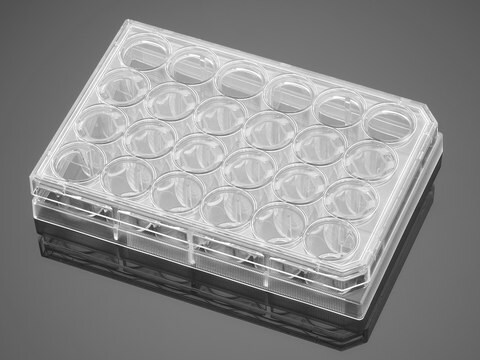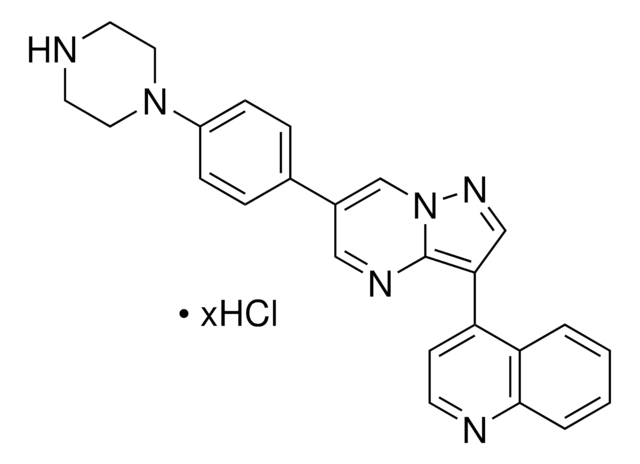SCR530
STEMCCA Constitutive Polycistronic (OKSM) Lentivirus Reprogramming Kit
The STEMCCA Constitutive Polycistronic Lentivirus Kit contains high titer polycistronic lentivirus & Polybrene transfection reagent that have been validated for the generation of mouse & human induced pluripotent stem cells.
Iniciar sesiónpara Ver la Fijación de precios por contrato y de la organización
About This Item
UNSPSC Code:
12352207
eCl@ss:
32161000
NACRES:
NA.81
Productos recomendados
Quality Level
manufacturer/tradename
STEMCCA
technique(s)
cell culture | stem cell: suitable
input
sample type induced pluripotent stem cell(s)
sample type: mouse embryonic stem cell(s)
shipped in
dry ice
General description
The STEMCCA Constitutive Polycistronic (OKSM) Lentivirus Kit contains high titer polycistronic (OKSM) lentivirus and Polybrene transfection reagent that have been validated for the generation of mouse and human induced pluripotent stem cells from mouse embryonic fibroblasts (MEFs) and human foreskin fibroblasts (HFFs), respectively. The STEMCCA vector is comprised of the transcription factors Oct-4, Klf4, SOX-2, and c-Myc (OKSM), separated by the self-cleaving 2A peptide and IRES sequences (Sommer CA, 2009). The use of a single polycistronic lentiviral vector significantly improves reprogramming efficiencies and reduces the number of viral integrations.
Components
1. EF1α-STEMCCA (OKSM) Lentivirus: (Part number CS204279) Three (3) vials containing 15 µL of high titer lentivirus.
2. Polybrene Transfection Reagent: (Part number TR-1003-50UL) One (1) vial containing 50 µL of 10 mg/mL stock.
2. Polybrene Transfection Reagent: (Part number TR-1003-50UL) One (1) vial containing 50 µL of 10 mg/mL stock.
Quality
Tested to confirm the generation of iPS cells from p3 mouse embryonic fibroblasts and p6 human foreskin fibroblasts. Other cell types have not been tested and thus similar results can not be guaranteed.
Storage Class
12 - Non Combustible Liquids
flash_point_f
Not applicable
flash_point_c
Not applicable
Certificados de análisis (COA)
Busque Certificados de análisis (COA) introduciendo el número de lote del producto. Los números de lote se encuentran en la etiqueta del producto después de las palabras «Lot» o «Batch»
¿Ya tiene este producto?
Encuentre la documentación para los productos que ha comprado recientemente en la Biblioteca de documentos.
Nuestro equipo de científicos tiene experiencia en todas las áreas de investigación: Ciencias de la vida, Ciencia de los materiales, Síntesis química, Cromatografía, Analítica y muchas otras.
Póngase en contacto con el Servicio técnico





